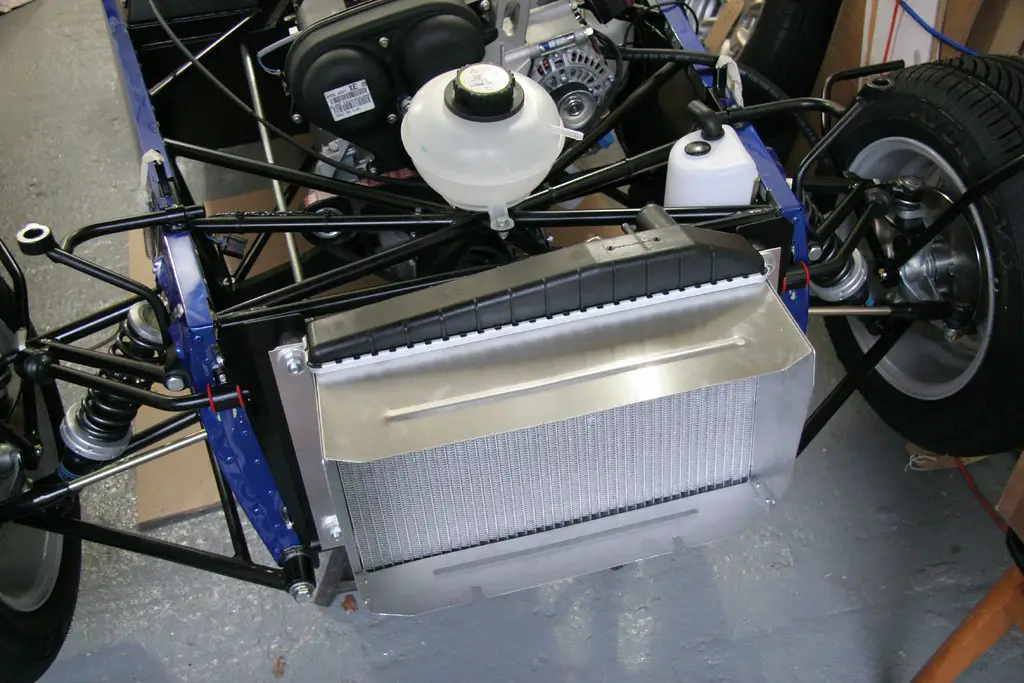If you’re a car beginner or an enthusiastic DIYer looking to understand and troubleshoot issues with your car’s cooling system, this guide is for you. Your car’s cooling system is essential for maintaining optimal engine temperature and preventing overheating. Here, we’ll explore the key signs that indicate the presence of air in the cooling system and provide solutions to address them, as well as how to tell if air in cooling system.
Symptoms of Air in the Cooling System
Car Overheating While Driving: One of the most noticeable symptoms is an overheating engine. When air gets trapped in the cooling system, it disrupts proper temperature sensing, causing the fan and cooling system to malfunction. If your temperature gauge shows irregular spikes, your system might be flawed.
- Heater Not Working: A nonfunctional heater is a clear sign of air pockets in the coolant system. Trapped air prevents hot fluid from reaching the heater core, resulting in no heat from the vents when the heater is turned on.
- Sound of Water Gushing: A gushing sound from the dashboard indicates air trapped in the system. Coolant pumps through the heater core, creating the sound. Ensuring proper coolant levels and releasing air from the system can address this issue.
- Overheating After Repairs: If your car overheats after recent repairs, it could be due to improperly secured components or air entering the cooling system during repairs. Subpar repairs can lead to air pockets and overheating.
- Unpredictable Coolant Levels: Air bubbles can cause coolant to be pushed out of the radiator cap, leading to inconsistent coolant levels. If you frequently top off the coolant but find no visible leaks, trapped air might be the cause.
- Erratic Temperature Gauge Readings: Trapped air affects the flow and temperature of coolant, causing temperature gauge readings to fluctuate or display extreme temperatures.
- Poor Fuel Efficiency: Air in the cooling system can lead to engine overheating and decreased fuel efficiency, as an overheated engine consumes more fuel.
- White Smoke from Exhaust: White smoke from the exhaust can indicate a compromised cooling system, where coolant isn’t circulating efficiently due to air pockets.
- Cold Upper Radiator Hose: If the upper radiator hose remains cold while the lower one is hot, air might be preventing hot coolant from circulating through the upper hose.
- Coolant Overflowing from Reservoir: Trapped air can create pressure, causing coolant to overflow from the reservoir, especially after a drive.
- Visible Air Bubbles in Coolant: Air bubbles rising to the top of the radiator or reservoir when the engine is started indicate air in the system.
Addressing Air in the Cooling System
Regular Maintenance: Be vigilant about these symptoms and address them promptly. Regular maintenance and checks can help prevent air pockets from forming.
- Flushing the Cooling System: Flushing the cooling system removes debris and prevents corrosion, ensuring proper system function. Automakers and mechanics recommend different intervals, so consider factors like vehicle age and type of driving.
- Bleeding the Cooling System: Bleeding removes air pockets from the system. Use a bleeder valve if your car has one, or follow alternative methods based on your vehicle’s make and model. Ensure the engine is cool to avoid injury.
- Draining with Jack Stands: To thoroughly remove air, place jack stands under the car to position the radiator neck above the engine. Allow the engine to run and cool, then top up coolant as needed.
If these symptoms persist despite your efforts, it might indicate deeper issues requiring professional attention. An expert mechanic can address problems like leaks or cracks in the cooling system.
In conclusion, understanding the signs of air in your car’s cooling system is crucial for maintaining engine efficiency and safety. By staying attentive and following proper maintenance and bleeding procedures, you can keep your car running smoothly and prevent further complications. Remember, a well-maintained cooling system keeps your engine cool and your worries at bay.


